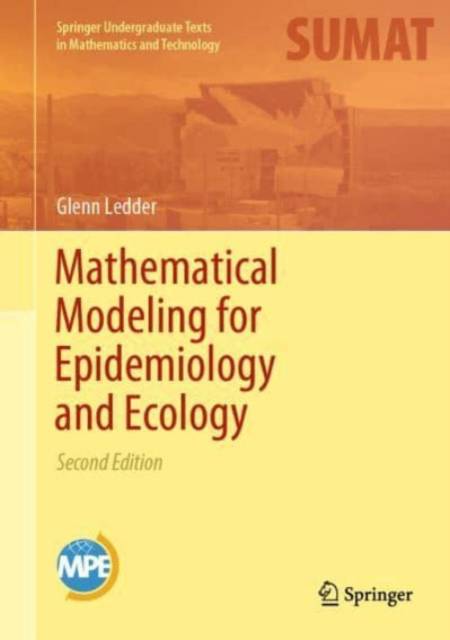
- Retrait gratuit dans votre magasin Club
- 7.000.000 titres dans notre catalogue
- Payer en toute sécurité
- Toujours un magasin près de chez vous
- Retrait gratuit dans votre magasin Club
- 7.000.0000 titres dans notre catalogue
- Payer en toute sécurité
- Toujours un magasin près de chez vous
Description
Mathematical Modeling for Epidemiology and Ecology provides readers with the mathematical tools needed to understand and use mathematical models and read advanced mathematical biology books. It presents mathematics in biological contexts, focusing on the central mathematical ideas and the biological implications, with detailed explanations. The author assumes no mathematics background beyond elementary differential calculus.
An introductory chapter on basic principles of mathematical modeling is followed by chapters on empirical modeling and mechanistic modeling. These chapters contain a thorough treatment of key ideas and techniques that are often neglected in mathematics books, such as the Akaike Information Criterion. The second half of the book focuses on analysis of dynamical systems, emphasizing tools to simplify analysis, such as the Routh-Hurwitz conditions and asymptotic analysis. Courses can be focused on either half of the book or thematically chosen material from both halves, such as a course on mathematical epidemiology.
The biological content is self-contained and includes many topics in epidemiology and ecology. Some of this material appears in case studies that focus on a single detailed example, and some is based on recent research by the author on vaccination modeling and scenarios from the COVID-19 pandemic.
The problem sets feature linked problems where one biological setting appears in multi-step problems that are sorted into the appropriate section, allowing readers to gradually develop complete investigations of topics such as HIV immunology and harvesting of natural resources. Some problems use programs written by the author for Matlab or Octave; these combine with more traditional mathematical exercises to give students a full set of tools for model analysis. Each chapter contains additional case studies in the form of projects with detailed directions. New appendices contain mathematical details on optimization, numerical solution of differential equations, scaling, linearization, and sophisticated use of elementary algebra to simplify problems.
Spécifications
Parties prenantes
- Auteur(s) :
- Editeur:
Contenu
- Nombre de pages :
- 364
- Langue:
- Anglais
- Collection :
Caractéristiques
- EAN:
- 9783031094538
- Date de parution :
- 15-04-23
- Format:
- Livre relié
- Format numérique:
- Genaaid
- Dimensions :
- 180 mm x 256 mm
- Poids :
- 997 g

Les avis
Nous publions uniquement les avis qui respectent les conditions requises. Consultez nos conditions pour les avis.






